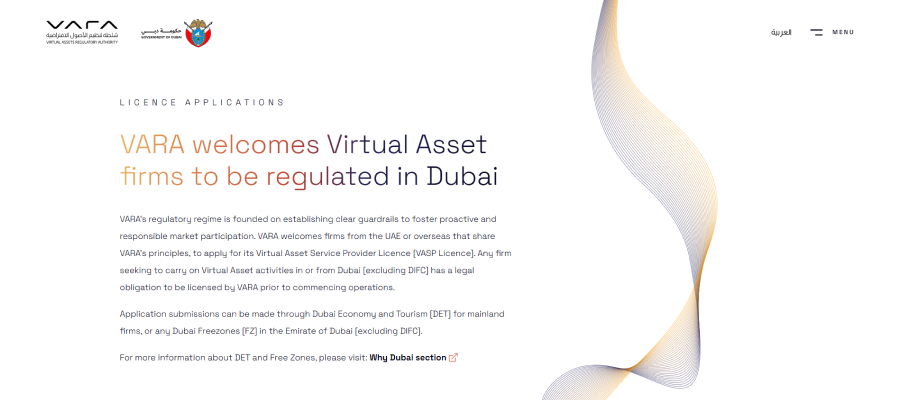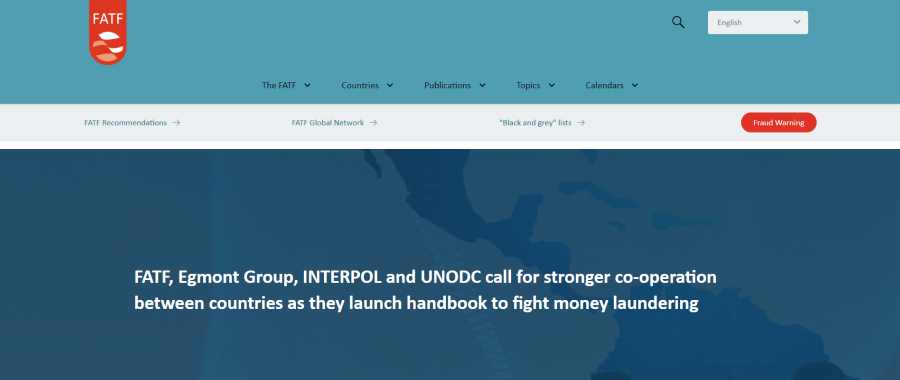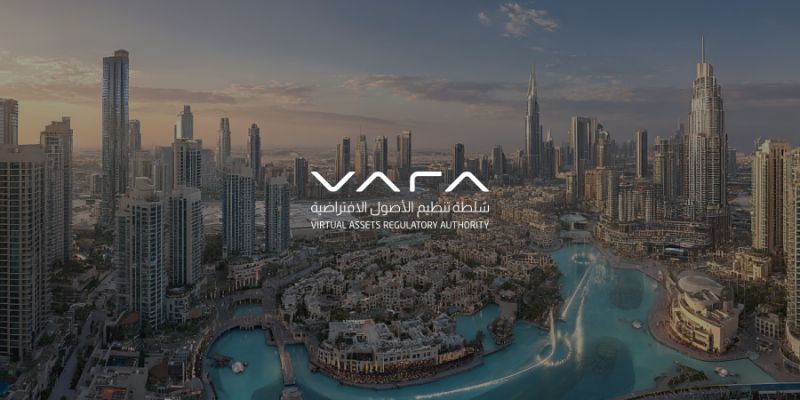Obtain a VARA license in the UAE, and you are not just filling out forms—you are stepping into one of the most closely watched experiments in digital finance anywhere in the world. Dubai’s Virtual Assets Regulatory Authority (VARA) is not a copy-and-paste regulator; it is the first of its kind, built from the ground up to address virtual assets with their own logic, risks, and opportunities. That distinction matters. It means the city has not simply adapted existing financial rules to crypto but has instead designed a framework that speaks the language of blockchain economies while still protecting investors and maintaining global trust.
For companies aiming to obtain a crypto license in the UAE, VARA represents both a gatekeeper and an enabler. The gatekeeper role is clear: no business can lawfully offer virtual asset services in Dubai without VARA’s blessing. The enabler role is more subtle but equally powerful: with a license in hand, operators gain credibility with banks, institutional investors, and international partners who might otherwise hesitate. In an industry that has suffered from perceptions of instability, credibility is currency.
Why does this matter now? Because regulatory clarity has become the dividing line between projects that scale and those that stall. The Virtual Assets and Related Activities Regulations of 2023 are not light reading, but they send a signal the market craves: certainty. Investors, founders, and customers know what standards apply, what is allowed, and what penalties follow misconduct. To obtain a VASP license in the UAE is to embrace that clarity rather than gamble in the shadows.
Critically, VARA’s scope is not narrow. It covers almost every form of virtual asset activity within Dubai—whether advisory, exchange, custody, or payments—while leaving space for innovation. It does not strangle the sector with one-size-fits-all prohibitions but insists that firms show governance, risk management, and transparency from day one.
So when you apply for a VASP license in Dubai UAE, remember that the paperwork is not the point. The point is joining a system designed to make Dubai a global hub for responsible virtual asset growth. That is the strong advantage: you are not simply legal—you are future-proofed in a jurisdiction intent on setting worldwide benchmarks.

Legal Foundation for a VARA License in the UAE
To obtain a VARA license in the UAE you first need to anchor your business inside a very specific legal framework. Unlike regions that patched old financial laws to cover digital assets, Dubai wrote its own. That decision is not cosmetic—it changes how every applicant must think about compliance, governance, and long-term sustainability.
Law No. 4 of 2022 – The Authority Comes to Life
VARA was born from Law No. 4 of 2022, which gave Dubai a standalone regulator for virtual assets. From March 2022 onward, no company could legally deal in crypto assets across Dubai—whether onshore or in free zones—without VARA’s approval. The only carve-out is the Dubai International Financial Centre, which runs its own regime. Everywhere else, if you want to get a crypto license in the UAE, VARA is the gatekeeper. This law gave VARA more than symbolic status; it gave teeth: power to license, supervise, and penalize.
The 2023 Regulations – Clarity Over Guesswork
Next came the 2023 Virtual Assets and Related Activities Regulations. These regulations define a Virtual Asset, the activities that require a license, and the operator's responsibilities. Anyone planning to apply for a VASP license in Dubai, UAE, must study these rules because they remove ambiguity. Exchanges, custodians, brokers, lenders, and even advisory firms are covered. The definition of a Virtual Asset Service Provider (VASP) is broad by design—if you handle client funds, private keys, or transfers, VARA wants you inside the perimeter.
Rulebooks – The Operating DNA
VARA regulates through rulebooks. Four apply to everyone:
- Company Rulebook (ownership, governance, disclosure)
- Compliance & Risk Management Rulebook (AML/CFT, oversight systems)
- Technology & Information Rulebook (cybersecurity, resilience, data handling)
- Market Conduct Rulebook (fair dealing, investor protection, transparency)
On top of that, activity-specific rulebooks apply depending on whether you run an exchange, provide custody, or advise clients. To obtain a VASP license in the UAE, you must prove readiness against both sets—general and specific.
International Alignment – Building Trust Beyond Dubai
VARA’s framework is not isolated. It aligns with Financial Action Task Force (FATF) principles, especially on anti-money laundering and counter-terrorist financing. That alignment makes a VARA license recognizable abroad. When you obtain a crypto license in the UAE, you are also signalling to banks and regulators in other markets that you meet the same “gold standard” benchmarks they respect. For startups and institutions alike, this global trust is often more valuable than the license itself.

Types of Virtual Asset Activities for a VARA License
When you obtain a VARA license in the UAE, you don’t walk away with a blank pass to “do crypto.” VARA doesn’t work like that. The license is always tied to specific activities, and each activity comes with its own expectations, rulebooks, and compliance load. Before you send in an application, you need to know which lane you’re driving in. Get it wrong, and you’ll either be rejected outright or spend months fixing missteps.
The Eight Recognized Activities
VARA currently regulates eight main categories of virtual asset activity. They are:
- Advisory – this is for firms that guide clients on virtual assets. It’s not about holding their money or running trades, but giving informed recommendations that match a client’s profile.
- Broker-Dealer – think of the middlemen who connect buyers and sellers. It covers arranging trades, making a market, or even trading on your own account.
- Custody – if you look after someone else’s coins or tokens, this is your lane. The rules insist on the segregation of assets and strict security measures.
- Exchange – running a trading platform, converting fiat to crypto or crypto to crypto, and keeping an orderly market. System and surveillance requirements make this one of the most difficult categories.
- Lending & Borrowing – This is the bucket for businesses that let clients borrow or lend crypto. The catch? You can't give tokens and expect them back. A VARA license requires good contracts, risk controls, and proof that the borrower returns the asset after the deal.
- Management & Investment – If you handle someone else’s virtual asset portfolio, whether it’s allocating tokens or staking them on validators, this is where you fit. It’s not just about chasing returns; you take on fiduciary duties, meaning you’re legally bound to act in your client’s best interest.
- Transfer & Settlement – This is the plumbing of the system. You move assets from one wallet or platform to another, sometimes as part of payments or merchant settlements. Because this is the channel criminals love to exploit, VARA makes traceability and anti-money laundering controls front and center here.
- Issuance (Category-1) – Thinking about launching your own token? If it’s a fiat-referenced coin or another asset type defined by regulation, this is the license you’ll need. But be ready: issuance is one of the heaviest categories. You’ll have to publish detailed whitepapers, disclose risks clearly, and keep up with ongoing reporting after launch.

Want to learn more about UAE business setup services?
Rulebooks Behind the Categories
Every applicant, no matter what category they choose, has to follow the four universal rulebooks: Company, Compliance & Risk Management, Technology & Information, and Market Conduct. Then come the activity-specific rulebooks, which vary depending on what you do.
- If you’re running custody, you’ll have to prove that client assets never get mixed together. Each customer’s tokens must live in their own segregated wallet, and you’ll need airtight security policies to back it up.
- If you’re applying for an exchange license, regulators expect more than just a trading engine. You’ll need clear, published rules for how trading works, a transparent order book, and systems to detect suspicious patterns that might point to market abuse.
- If you want to act as an issuer, you step into a heavier regime. That means preparing whitepapers that actually disclose risks, ongoing reporting obligations, and following the Virtual Asset Issuance Rulebook line by line.
This dual-layer approach—general plus specific—means you can’t just tick one box and be done. To obtain a VASP license in the UAE, you need to prove readiness on all fronts.
Why Categorization Matters
Choosing your category is not a branding exercise; it’s the backbone of your application. If you describe yourself as an “exchange” but only provide peer-to-peer transfers, VARA will reclassify you and possibly deny your application. Precision matters. Ask yourself:
- What do clients actually pay us for?
- Where does the main risk sit—keys, trades, or advice?
- Do we have the infrastructure to meet the rulebook for this category?
Those answers determine whether your application lands smoothly or stalls.
Applying for More Than One
A single VASP license can cover multiple activities, but each extra category multiplies the obligations. If you apply for exchange, custody, and issuance at the same time, you inherit three different sets of detailed requirements. And if you fall short in one area, your whole license could be delayed. Many firms start with one or two categories, then expand once they have the systems and staff in place.
Steps to Apply for a VARA License in the UAE
Applying for a VARA license isn’t a formality. It’s closer to an X-ray of your entire business. VARA wants to know: who’s behind you, how you make money, whether your tech can hold up, and if your compliance is more than a PowerPoint slide. To apply for a VASP license in Dubai UAE is to agree to show the guts of your operation — and if the guts don’t match the story, expect a long winter of delays.
Stage One: The First Impression – IDQ
A journey to obtain a VARA license in the UAE begins with the Initial Disclosure Questionnaire. Think of this as introducing yourself to a very skeptical audience. You tell them what you plan to do, who owns the company, and what markets you’ll serve. Many applicants blow it here by trying to look more polished than they are. VARA doesn’t punish humility, but it does punish omission. If there’s a shareholder hiding in the background or a detail you conveniently “forget,” they will find it. And once trust is gone, good luck getting it back.
Stage Two: Approval to Incorporate – Planting Your Flag
Pass the first test, and VARA gives you an Approval to Incorporate. That’s the moment you’re allowed to set up your legal entity in Dubai, a mandatory step if you want to get a crypto license in UAE. Not in London, not in Singapore — VARA wants you physically here, with an office and presence they can supervise. You can pick mainland or a free zone (just not DIFC, which has its own rules). But don’t see this as box-ticking. The place you incorporate shapes your tax footprint, your cost base, and the kind of investors who will take you seriously.
Stage Three: Full License Application – The Real Examination
Now comes the long haul. The full application is where VARA looks under the hood. They’ll want a business plan that shows more than just token launches. They’ll check your governance chart to see if the compliance officer has real authority or is just a nameplate. They’ll go through your risk framework, your AML and CFT procedures, and your sanctions screening. If you want to get a VASP license in the UAE, they’ll ask whether your technology team has the chops to defend wallets, APIs, and data against real threats.
This is also where capital requirements bite. An exchange needs more muscle than an advisory shop. A custodian will be grilled on segregation of assets. An issuer has to produce disclosures and whitepapers that hold up under scrutiny. Each license category carries its own set of hoops, and VARA expects you to clear them cleanly, not with vague promises.
Stage Four: Back-and-Forth and Final Approval
Even with a perfect application, VARA rarely signs off without questions. They may ask for clarifications, new documents, or direct meetings with your leadership. Don’t panic — this is normal. They’re testing whether you can answer under pressure, whether your team knows the business in detail, not just on slides. When approval comes, your firm appears on the public register as a licensed Virtual Asset Service Provider — the official sign that you’ve managed to obtain a VARA license in the UAE.
How to Survive the Process
Here’s the part nobody tells you: the application isn’t just about paperwork. It’s a rehearsal for running your business in the open. If you treat compliance like a side project, VARA will notice. If your tech team can’t explain their architecture, VARA will notice. And if your directors don’t understand the risk frameworks you claim to use, VARA will definitely notice.
So prepare like this:
- Run a gap analysis before you ever send the first form.
- Build compliance into the DNA of the company, not as an afterthought.
- Hire people who can sit in front of a regulator and hold their ground.
- Accept that timelines stretch. Weeks turn into months. Plan for it.

Compliance & Ongoing Obligations for a VARA License in the UAE
Getting approved is one thing. Keeping your license is another. When you obtain a VARA license in the UAE, you agree to live under constant supervision. VARA doesn’t just hand you a certificate and disappear — it expects you to prove, day after day, that your business can be trusted with client assets and market stability.
AML and Risk Controls Every VASP Must Maintain
At the top of the list is anti-money laundering (AML) and counter-terrorist financing (CFT) compliance. VARA assumes that virtual asset businesses are prime targets for abuse, so your monitoring systems need to be sharp. That means full know-your-customer checks, sanctions screening, real-time transaction monitoring, and timely reporting of suspicious activities. If you cut corners here, it’s not just a fine — you risk losing the license altogether. For firms that want to get a crypto license in UAE, this is the part of the rulebook that often feels toughest, because it demands both people and technology working together without gaps.
Governance and Reporting Obligations Under a VASP License
Holding a license also means running a transparent governance structure. VARA requires every Virtual Asset Service Provider to appoint a compliance officer with genuine authority — not just a figurehead. Internal audits, annual risk reviews, and quarterly filings are not optional; they are baked into the license conditions.
On top of that, VASPs pay ongoing supervision fees to fund the regulator’s oversight. These obligations don’t sound exciting, but investors notice. A firm that files on time and answers regulator queries quickly builds credibility far faster than one that dodges emails.
Technology and Market Conduct Requirements
The Technology & Information Rulebook still applies even after you get your license. You need to keep your systems strong, and wallet separation, penetration testing, breach reporting, and disaster recovery planning are all part of the ongoing playbook. The Market Conduct Rulebook, on the other hand, makes sure you act right: no wash trading, no false advertising, and no conflicts hidden in small print. You could get in trouble if you apply for a VASP license in Dubai, UAE, and then don't follow these rules. VARA's history of enforcement shows that it won't think twice about taking away or suspending licenses when trust is broken.
In Dubai, getting a license to run a virtual asset business is less about passing the first test and more about being ready every day. If you want to get a VASP license in the UAE, you agree to work with a regulator who wants you to be consistent, honest, and strong. It isn’t easy, but that’s exactly what makes the license valuable — because survival under these obligations proves you’re not just here for quick wins, you’re here to last.
Challenges & Common Pitfalls When Applying for a VARA License
While applying for a VARA license may look simple — send forms, pay fees, wait for the certificate — in reality, the road is not simple. If you want to obtain a VARA license in the UAE, here are the potholes you need to dodge.
- Business plans built on air. Too many applicants submit slides full of buzzwords and token launches but no financial backbone. VARA isn’t impressed by slogans; it wants to see how you’ll survive the next market downturn. If your model collapses the moment crypto prices dip, expect questions you can’t answer.
- Paper governance. On paper, the compliance officer looks perfect. In reality, she has no access to decision-makers. Regulators aren’t fooled — they test whether your governance structure actually works. If roles exist only for show, the license stalls.
- Ownership secrets. Some founders try to bury beneficial owners behind layers of holding companies. VARA has no patience for this. If you don’t disclose who really controls the business, you don’t move forward. Simple as that.
- Running light on capital. Each license category has capital thresholds, and they’re not symbolic. Exchanges and custodians especially need strong reserves. If your “capital” is only a promise from investors that might vanish tomorrow, VARA will see it as risk.
- Weak tech skeletons. You can’t secure client wallets with half-tested code. VARA’s technology rulebook demands real architecture: segregation, monitoring, incident response. Show them fragile systems, and you’ll be sent back to the drawing board.
- Picking the wrong zone. Incorporation choices matter. Some free zones fit better than others, and a mismatch can create headaches down the road. You must prove a real presence in Dubai, not just a mailing address.
- Compliance theater. This is maybe the biggest trap. A glossy AML manual copied from the internet won’t save you when VARA asks, “How does this process actually run in your company?” If your staff can’t explain, your credibility evaporates.
The truth is, getting through this process is less about speed and more about honesty. To get a crypto license in UAE that sticks, you need to show VARA you’ve done the hard work: real governance, real money in the bank, and real systems behind the pitch deck. Anything less, and you’ll spend more time answering follow-up letters than building your business.
Strategic Advice & Best Practices for a VARA License
If you want to get a VARA license in the UAE without spending months rewriting and clarifying, you need to be ready. Before you even look at the application, do a gap analysis. Compare your business plan, governance, technology, and compliance systems to VARA's rules. Finding weak spots too late is a common cause of delays.
Bring the right people in early — a compliance officer with real authority, a tech lead who understands wallet security, and directors who can answer regulators without hesitation. Avoid overloading your first application with every activity under the sun; it’s often smarter to start with one or two categories you can fully support, then expand once you’re licensed.
Think about communicating with VARA as part of the process. Regulators don't expect perfection; they expect people to be honest and helpful. Also, remember that it's not about how fast you can get a crypto license in the UAE. It's about building the operations that will keep your company credible after the certificate is issued.

Conclusion
To obtain a VARA license in the UAE is not just to clear a regulatory hurdle — it is to claim a seat in one of the world’s most carefully built digital asset markets. Dubai created VARA to separate serious operators from those chasing shortcuts, and that distinction carries weight with investors, banks, and partners worldwide. When you get a crypto license in the UAE, you show that your business can survive deep scrutiny, handle compliance with discipline, and still innovate inside a secure framework.
It's supposed to feel hard, and the process can be harsh. But those who keep going will get more than just paperwork in return. In a market that values trust, its credibility is key. Don't see applying for a VASP license in Dubai, UAE as a problem. Instead, see it as a chance to show what you can do. A VARA license is a signal: your firm is prepared, resilient, and built to last in a borderless economy that is only just beginning to take shape.
